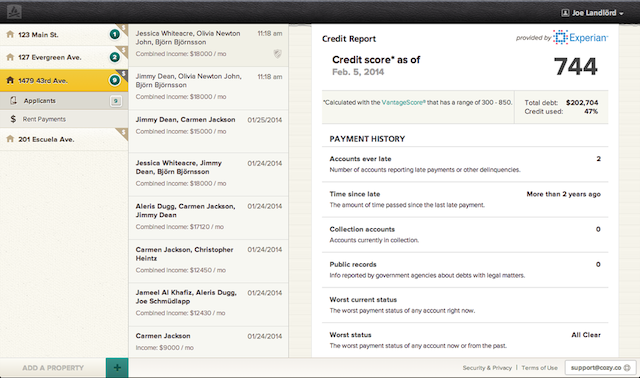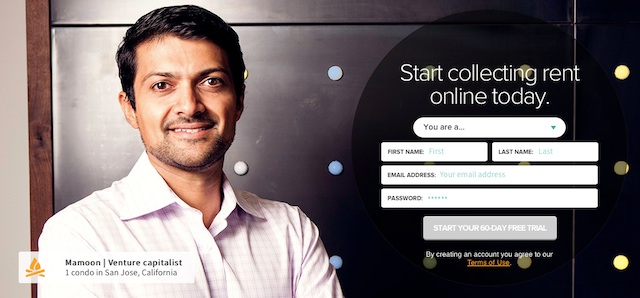Cozy is tackling another part of the rental process today with the launch of a new feature for credit checks.
The startup, which raised a Series A led by General Catalyst last year, already allows landlords to perform tasks like screening tenants and collecting rent. Now, when a landlord finds an applicant that they’re interested in, they can actually request the credit report from the Cozy website. Then, the applicant can choose whether or not to approve the request (presumably they’ll say yes if they want the apartment).
Co-founder and CEO Gino Zahnd said this changes the process in a few key ways. First, it means that the applicant doesn’t have to give their Social Security number to the landlord of every apartment that they’re applying for. Obviously, that’s a security issue for the applicant, but Zahnd argued landlords don’t necessarily enjoy being stuck with a stack of sensitive personal information to dispose of, either.
“We’re completely changing who controls the information during this process,” he said.
Second, Zahnd said this eliminates the need for an application fee. In fact, he claimed that his goal is to “rid the world of application fees,” which he described as “a ridiculous idea.”
Third, after the initial report, every follow-up credit request is a “soft inquiry” that just updates your information, rather than a “hard inquiry.” The important difference? A hard inquiry affects your credit score, while a soft inquiry doesn’t.

To provide this information, Cozy uses the Experian Connect API. Zahnd said the fact that credit reporting company Experian is now willing to make this data available to other companies through an API is a sign of how the industry is changing: “Consumers expect to have control of their private information. … Experian very much recognizes that.”
He added that the credit reporting launching today is “very much a first version,” with new features planned that will “give renters even more power around how this works and who initiates the process.”
